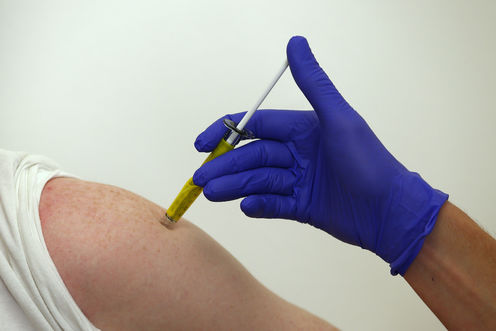In tropical and subtropical regions, such cold storage requirements could contribute to more than 80 percent of the vaccine cost.
A better solution may one day be available. Researchers have developed a less expensive way to produce vaccines that cuts the cost of vaccine production and storage by 80 percent without decreasing safety or effectiveness. They engineered a live-attenuated Zika vaccine in DNA form. Once the DNA is delivered into our body, it launches the vaccine in our cells, leading to antibody production and other protective immunity. With this production method, there is no need to manufacture the vaccine in cell culture or eggs at factories.

Because DNA molecules are shelf stable, the vaccine will not expire at warm temperatures and could be stockpiled at room temperature for years.
Using a Zika vaccine as a model, the research group showed that the DNA platform worked very efficiently in mice. After a single low dose, the DNA vaccine protected mice from Zika virus infection, mother-to-fetus transmission during pregnancy and male reproductive tract infection and damage.
“This is the first study to demonstrate that, after a single low dose, a DNA vaccine could induce saturated protective immunity,” said Pei-Yong Shi, professor in the department of biochemistry and molecular biology at the University of Texas Medical Branch. “We will continue testing this promising Zika vaccine platform and then apply the platform to other viruses.”






Comments